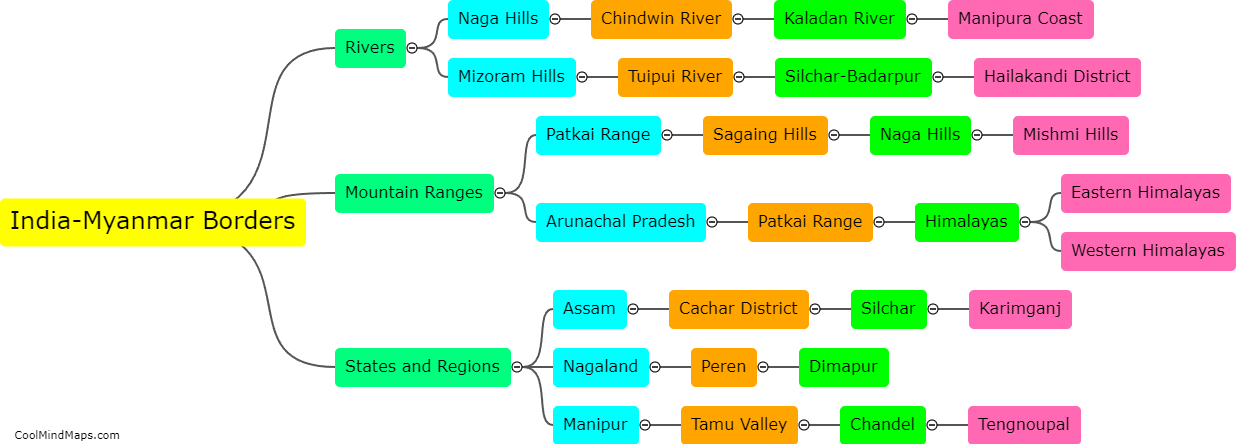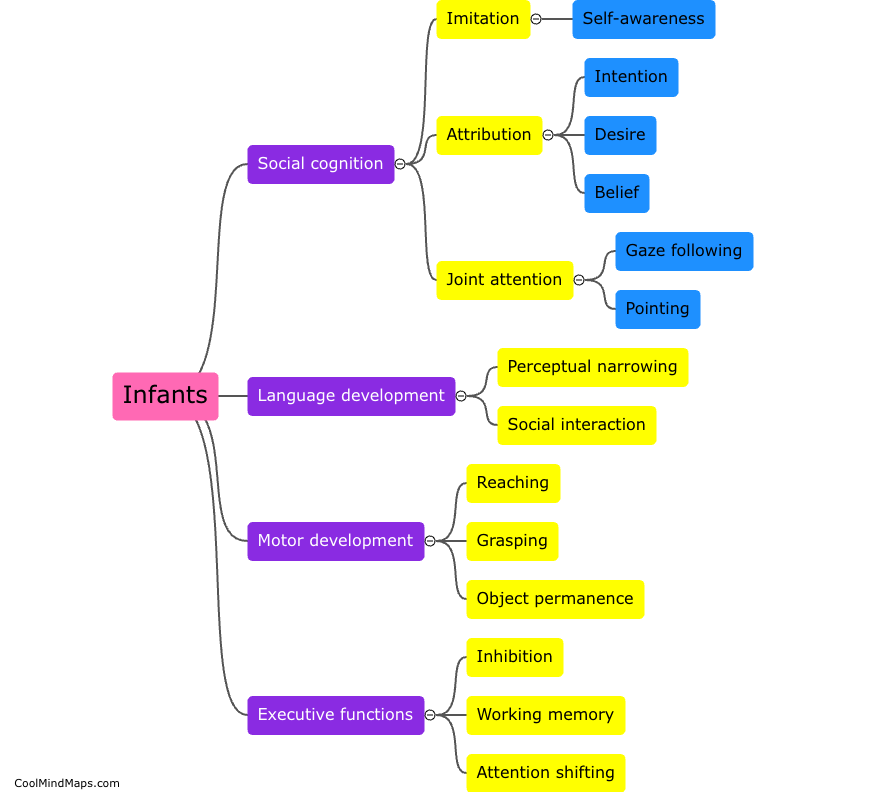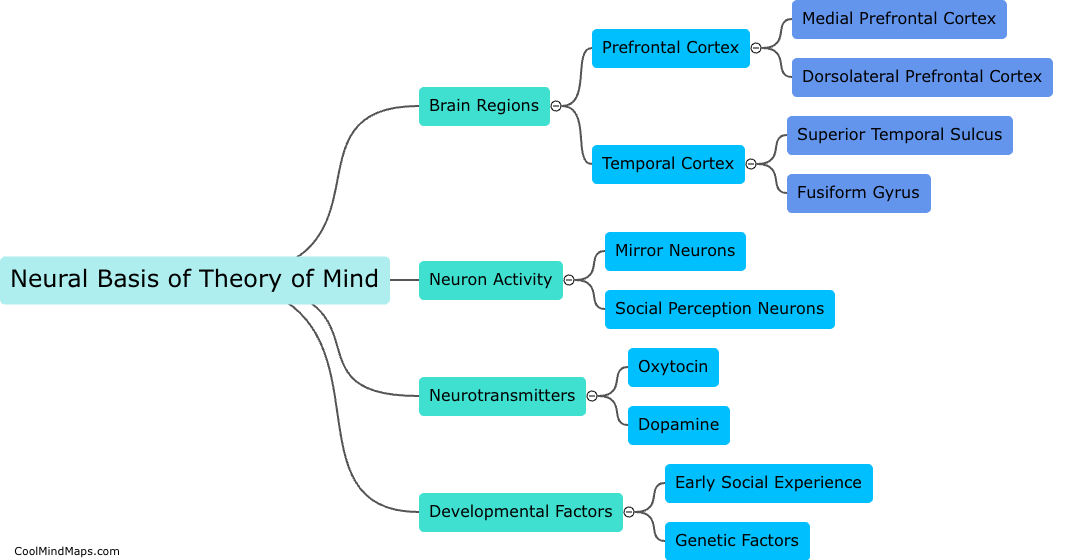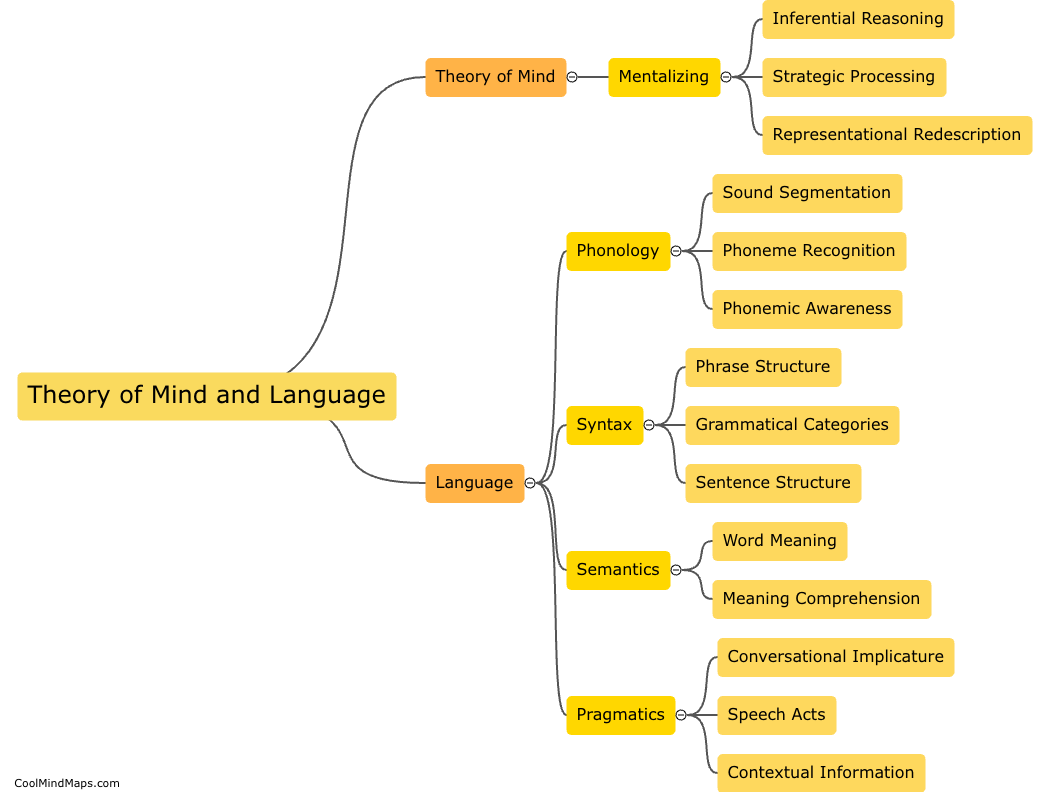Organ systems and their functions
Organ systems are groups of organs that work together to perform specific functions in the human body. The respiratory system, for example, includes organs such as the lungs and trachea, and is responsible for exchanging gases between the body and the environment. The digestive system, featuring the stomach and intestines, breaks down food and absorbs nutrients. The immune system defends the body against infection and disease through specialized cells and tissues, while the circulatory system, including the heart and blood vessels, pumps blood and nutrients throughout the body. These are just a few examples of the many organ systems in the body, all with different purposes and functions that work together to keep us alive and healthy.
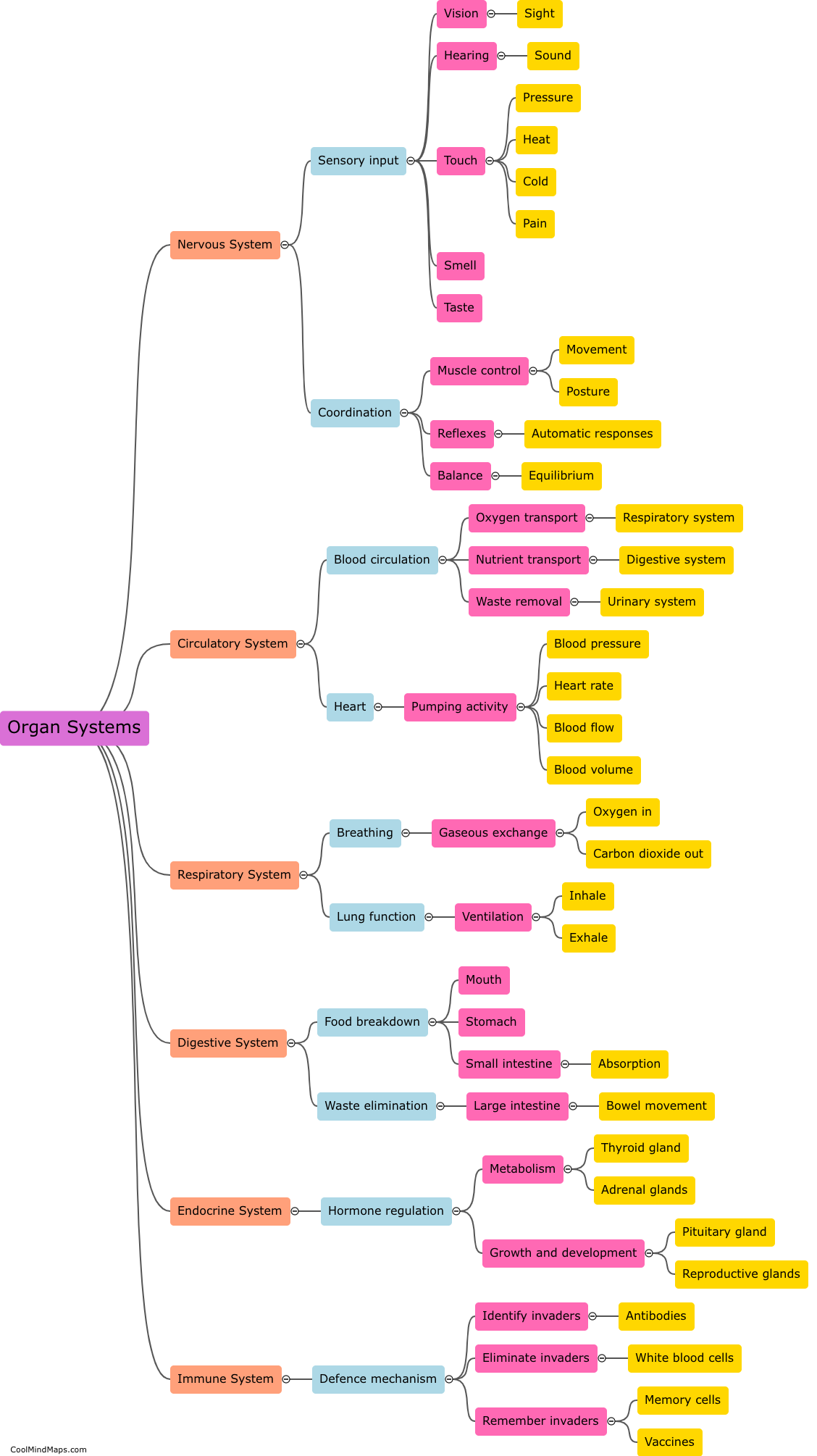
This mind map was published on 4 June 2023 and has been viewed 185 times.
